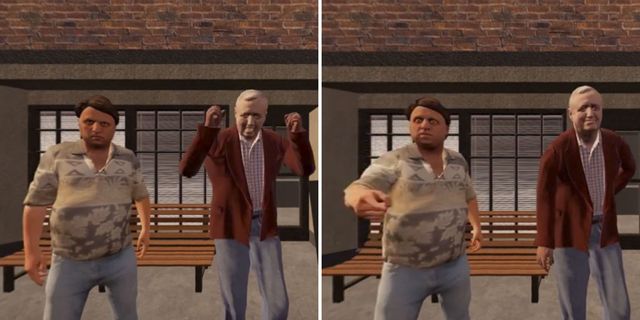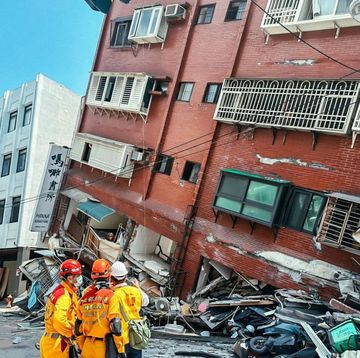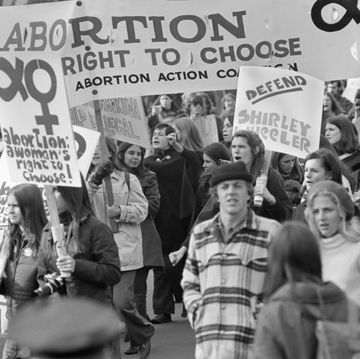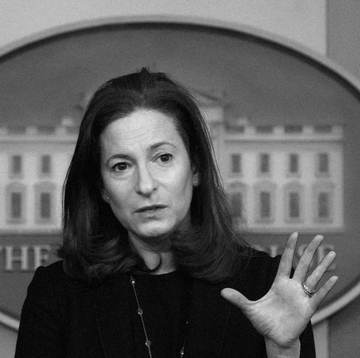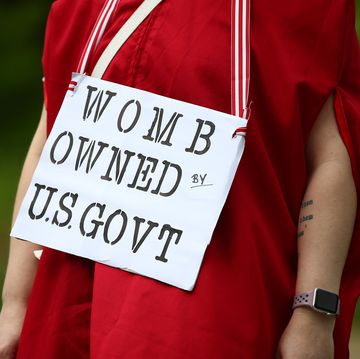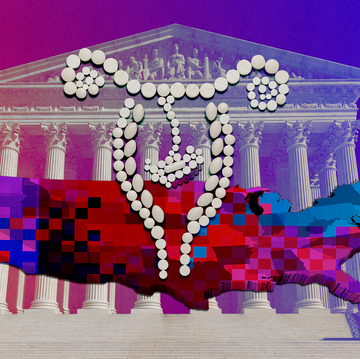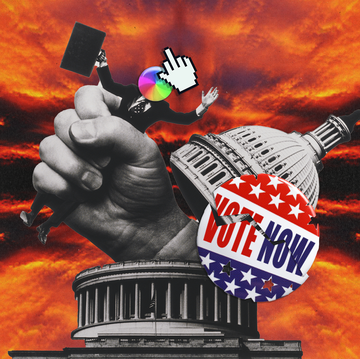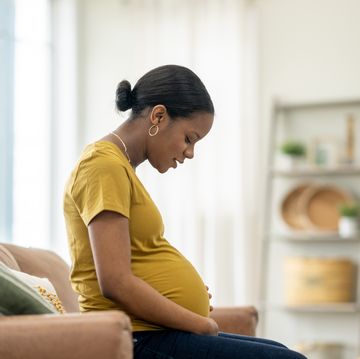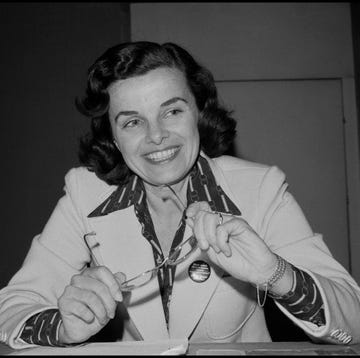"You're a whore!"
"Maybe your parents should have aborted you!"
"Shame on you, you wicked, pathetic woman!"
You're trying to walk into a Planned Parenthood clinic when a group of angry men and women surround you. They're screaming venomous insults, shoving their fingers in your face, and flashing angry signs at you. It's invasive and deeply unsettling and scary.
Except that you're not really in front of a Planned Parenthood clinic. In reality, you're wearing an HTC Vive virtual reality headset and headphones as someone takes your arm and guides you around a room. The menacing figures shouting at you are 3-D animated renderings, not real people. But everything they're saying to you is real audio from real anti-abortion protesters around the country. When you take the headset off, it's hard to casually shrug off what you just saw, heard, and felt.
[youtube ]https://www.youtube.com/watch?v=RbQxThmI2uo
[/youtube]
The above scene is from Across the Line, a seven-minute virtual reality film that puts you in a young woman's shoes as she visits a Planned Parenthood clinic. You ride backseat with Kristina and her friend Samantha as they drive by protesters outside the Illinois clinic. When Kristina rolls down her window to ask for directions, a man begins proselytizing: "I don't know what your situation is, but there's a more dignifying choice for you as a woman and as a mother," he says. (This particular verbal assault actually took place while the cameras were rolling.) Then the car is gone, and you're standing face-to-face with an angry mob of animated characters who hate you. You're a fly on the wall as patient Kristina Nailen tells Dr. Raegan McDonald-Mosley how deeply the protesters outside rattled her. Kristina and Samantha are not actors (both of them have received abortions at Planned Parenthood) nor is Dr. McDonald-Mosley (she is Planned Parenthood's chief medical officer).
Cosmopolitan.com tested the part-documentary, part-fictional immersive experience Monday evening in New York City at a private media screening hosted by Planned Parenthood. The film was executive produced by Planned Parenthood and co-created by Nonny de la Peña, a virtual reality pioneer dubbed the "Godmother of Virtual Reality" by Engadget, and documentary filmmakers Brad Lichtenstein and Jeff Fitzsimmons. It debuted at the Sundance Film Festival in January and is now touring around the country.
The film, which exposes audiences to the daily harassment thousands of women endure when making routine visits to reproductive health-care centers, arrives at a time when threats and violence against abortion providers and patients are at an all-time high. In the past five years, states have passed 288 laws that make it harder for women to access a safe and legal abortion. Legislative attacks on Planned Parenthood increased after last summer, when an anti-abortion group released a series of highly edited videos that alleged Planned Parenthood illegally sold fetal tissue for profit. The organization has denied the allegations, and 12 state investigations have turned up nothing. In November, a man who later declared himself a "warrior for the babies" fatally shot three people and wounded nine. Dozens of Planned Parenthood clinics responded by tightening security.
Molly Eagan, vice president of Planned Parenthood Experience, told Cosmopolitan.com that the project came together last spring, months before the videos or the attack. "We knew though, that with some of the events of the summer and the fall, with the videos and the shooting, that it just made it more essential for us to keep on with the work. It wasn't because of those things, but we felt like it was a very important piece to release to the public because of the escalation of bullying outside of health centers [which] really leads to violence," she said.
Despite an increasingly hostile climate for reproductive rights, activists are hopeful there are ways to engage people in thoughtful debate. A recent poll by PerryUndem Research and Vox found that 55 percent of voters are uninformed about the growing number of laws that make it harder for women to access reproductive heath care, and 75 percent of voters believe that abortion should be a positive experience. In other words, most people in America are unaware of the challenges women face to access an abortion. By authentically portraying the maddeningly ordinary harassment women deal with, the film's creators hope to cut through some of the polarized political debate and appeal to people on an emotional level. It's about as authentic an experience as you can get outside of visiting a Planned Parenthood clinic yourself.
Dawn Laguens, executive vice president of Planned Parenthood, said she hoped the film would generate dialogue and awareness among those who oppose abortion. "When it was first something that we were talking with the filmmakers about, I was really thinking in terms of maybe people who were more neutral, or even opponents of abortion, to at least have a conversation to say, 'You can oppose abortion but treating people this way is wrong,'" she said.
It seems like the film has increased awareness about harassment among pro-choice people as well. She was particularly surprised by the reaction from some men who watched the film at Sundance. "About five of them said, 'I want to punch somebody.' It made them so, so angry to see that that was the reality of how women were being treated, and providers," she told Cosmopolitan.com. "I was really caught off-guard by how much [virtual reality] galvanized supporters to want to act," she said.
"They didn't understand the kind of ferocity," she said. "The real belligerence and some of the trickery involved. I think they thought it was way more limited in scope."
Planned Parenthood is organizing viewing events across the country. If you aren't able to see the film in VR, you can watch it online here.
Follow Prachi on Twitter.

Prachi Gupta is an award-winning journalist and former senior reporter at Jezebel. She won a Writers Guild Award for her investigative essay “Stories About My Brother.” Her work was featured in The Best American Magazine Writing 2021 and has appeared in The Atlantic, The Washington Post Magazine, Marie Claire, Salon, Elle, and elsewhere. PrachiGupta lives in New York City.
